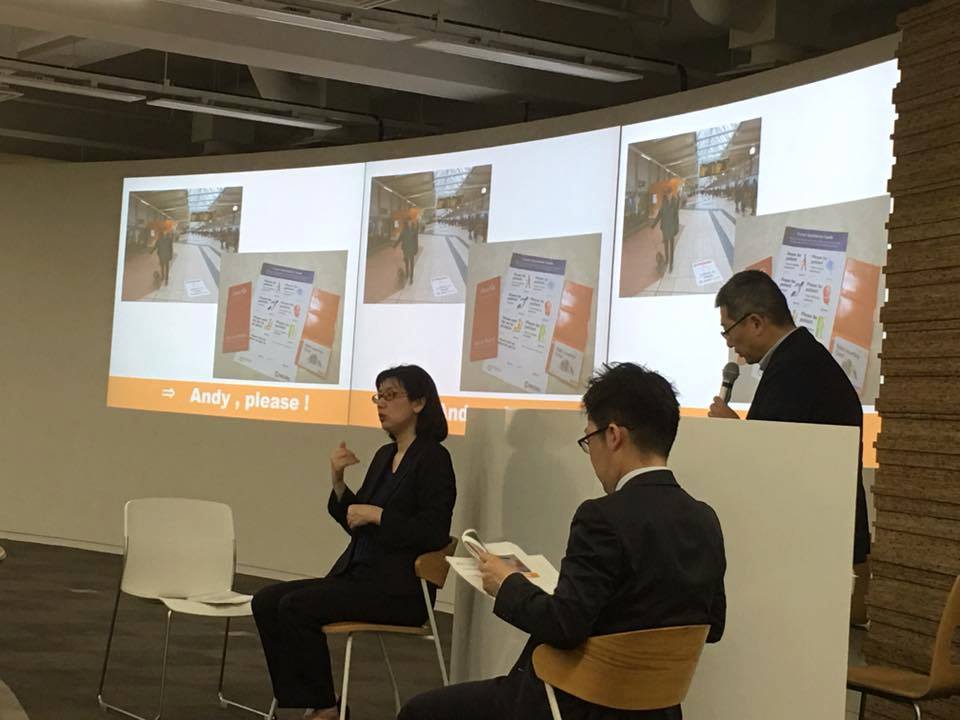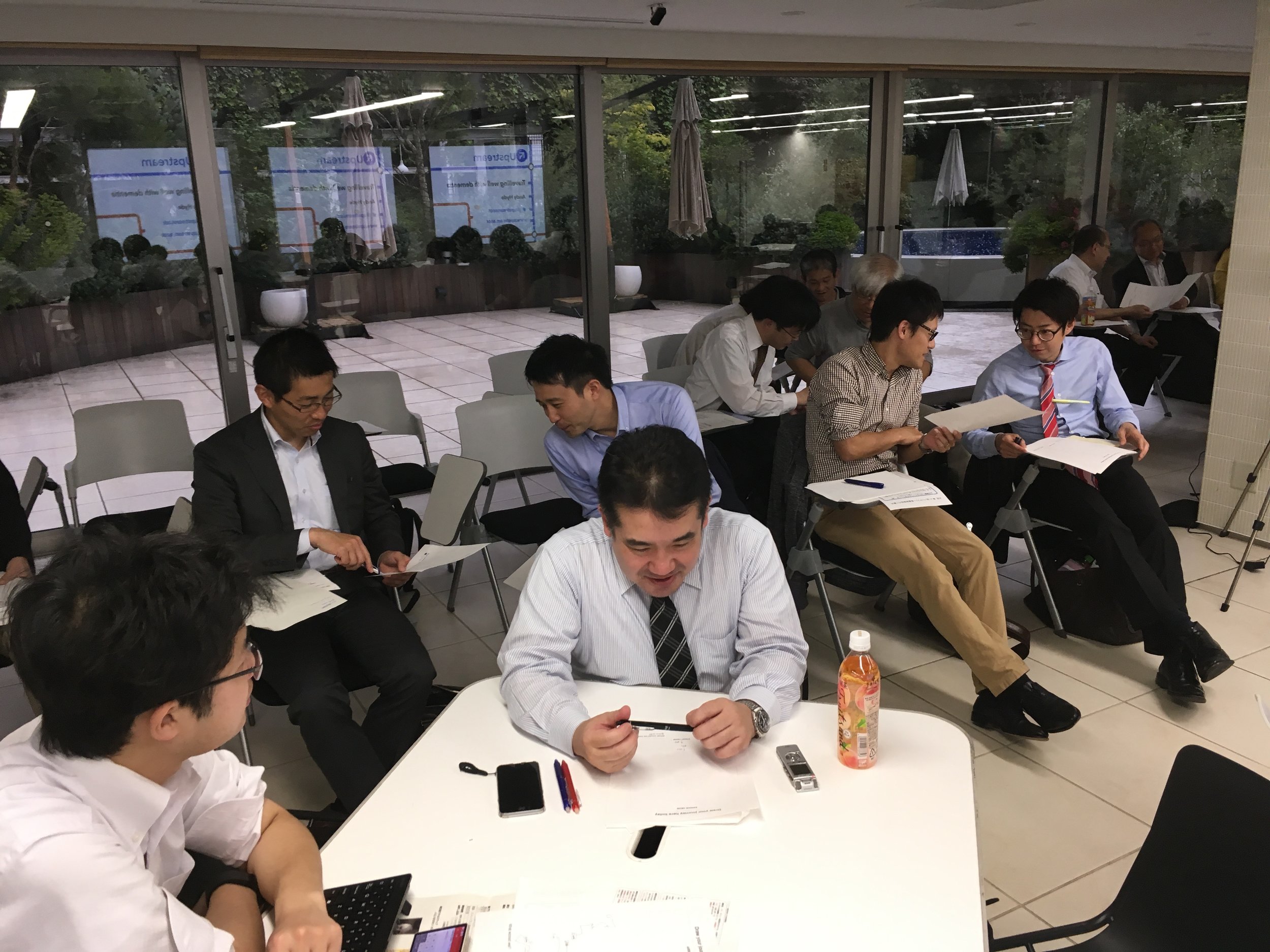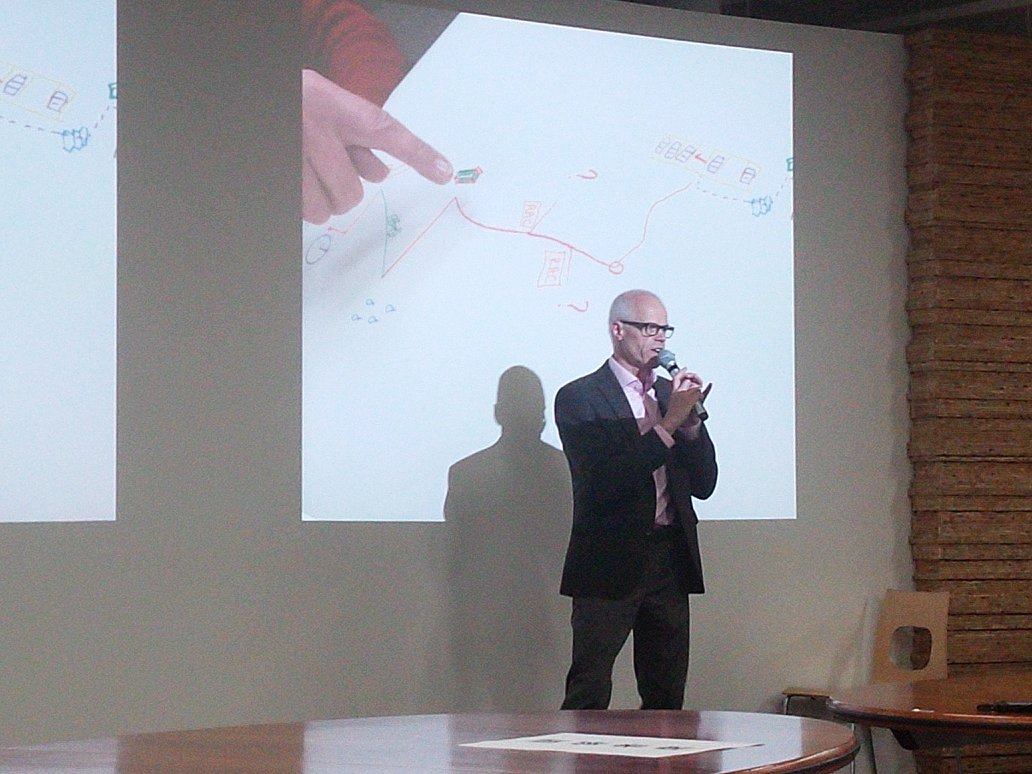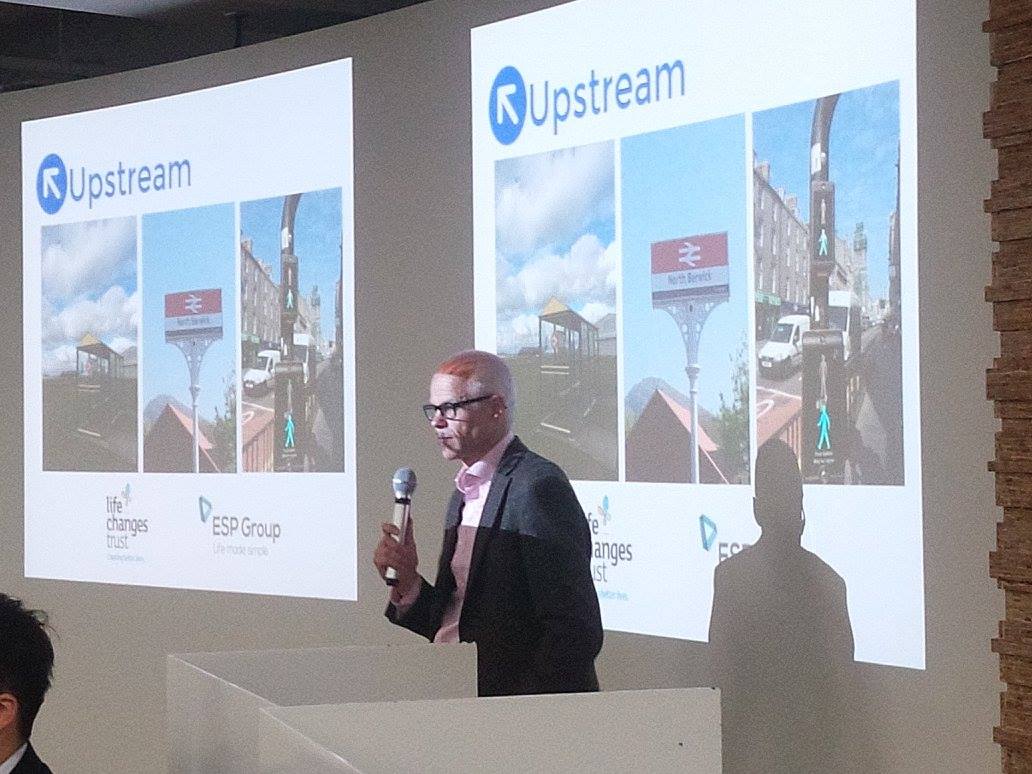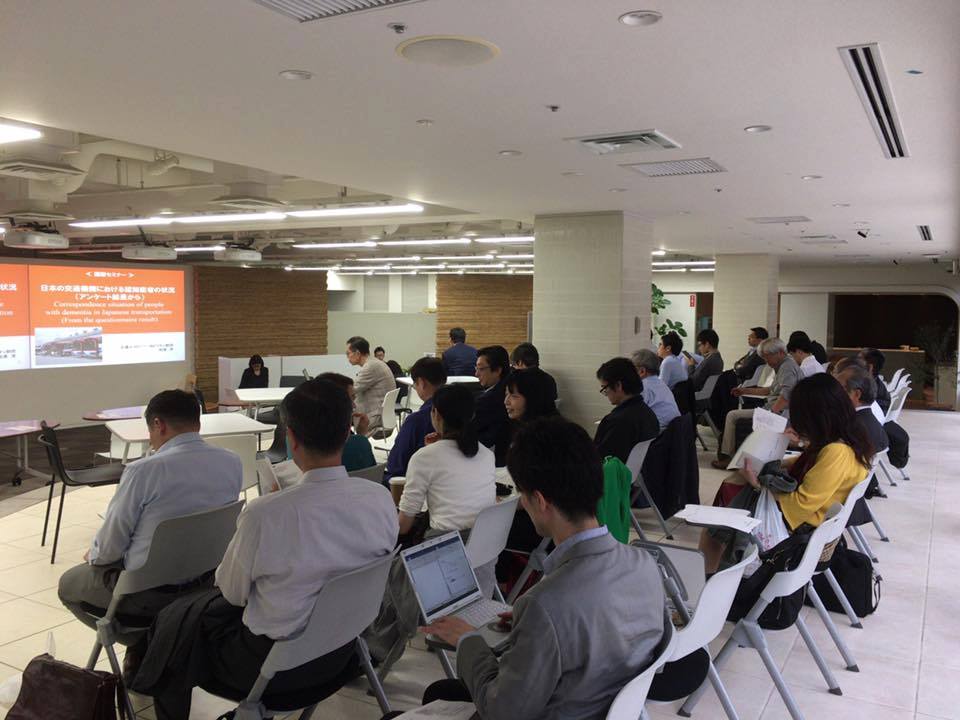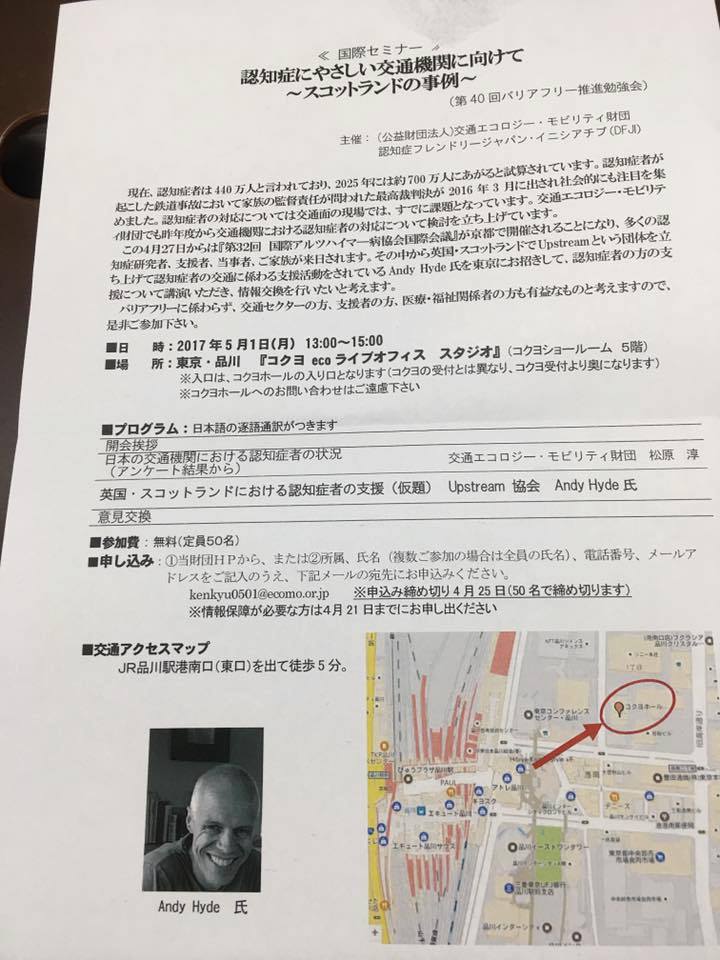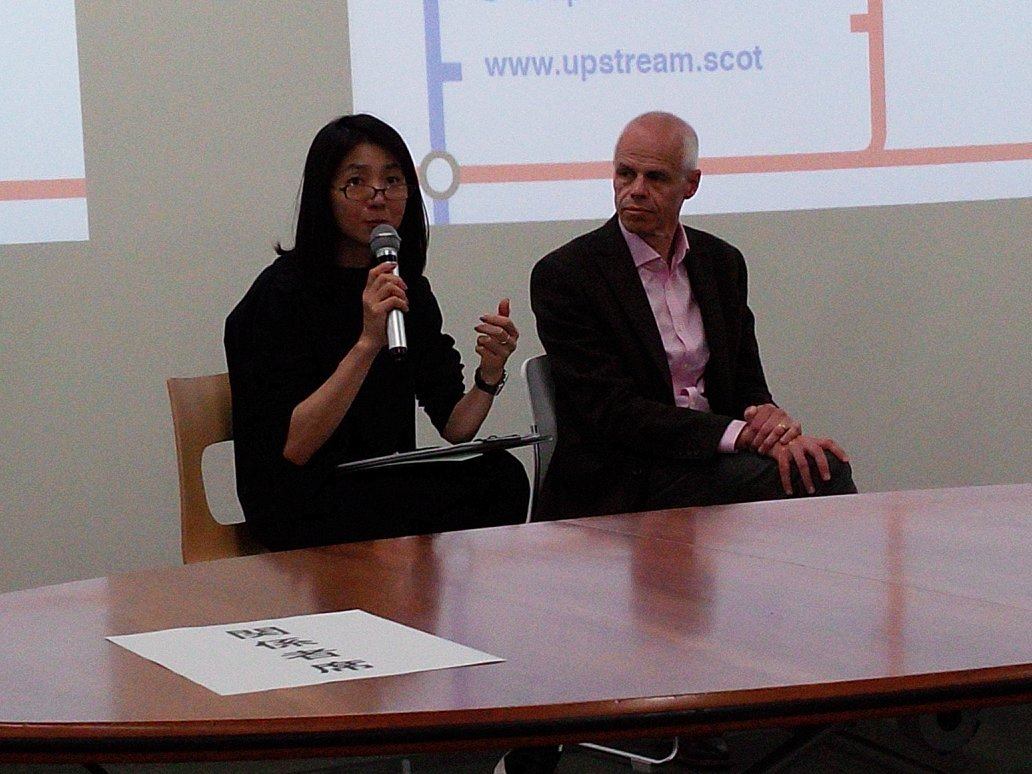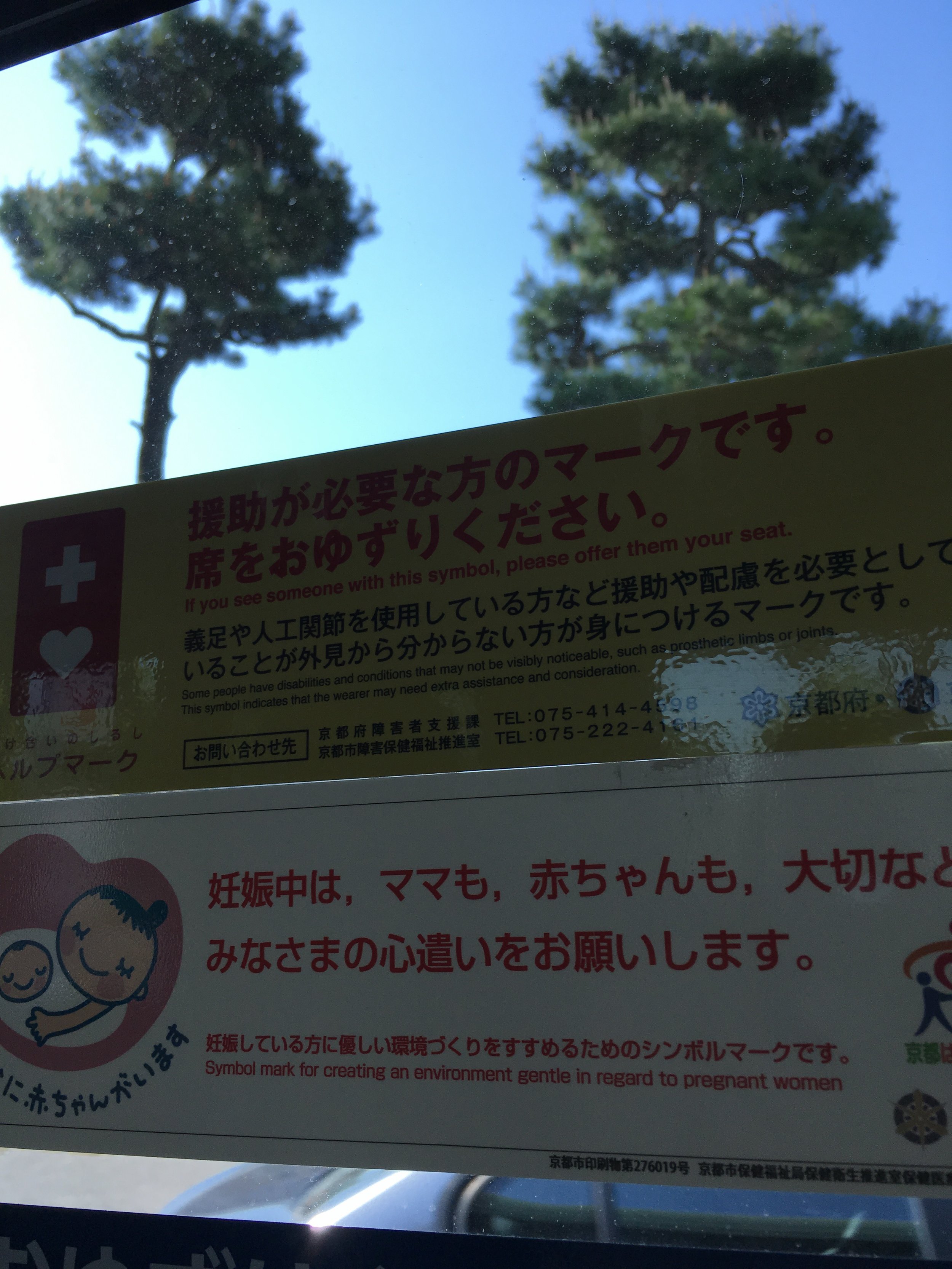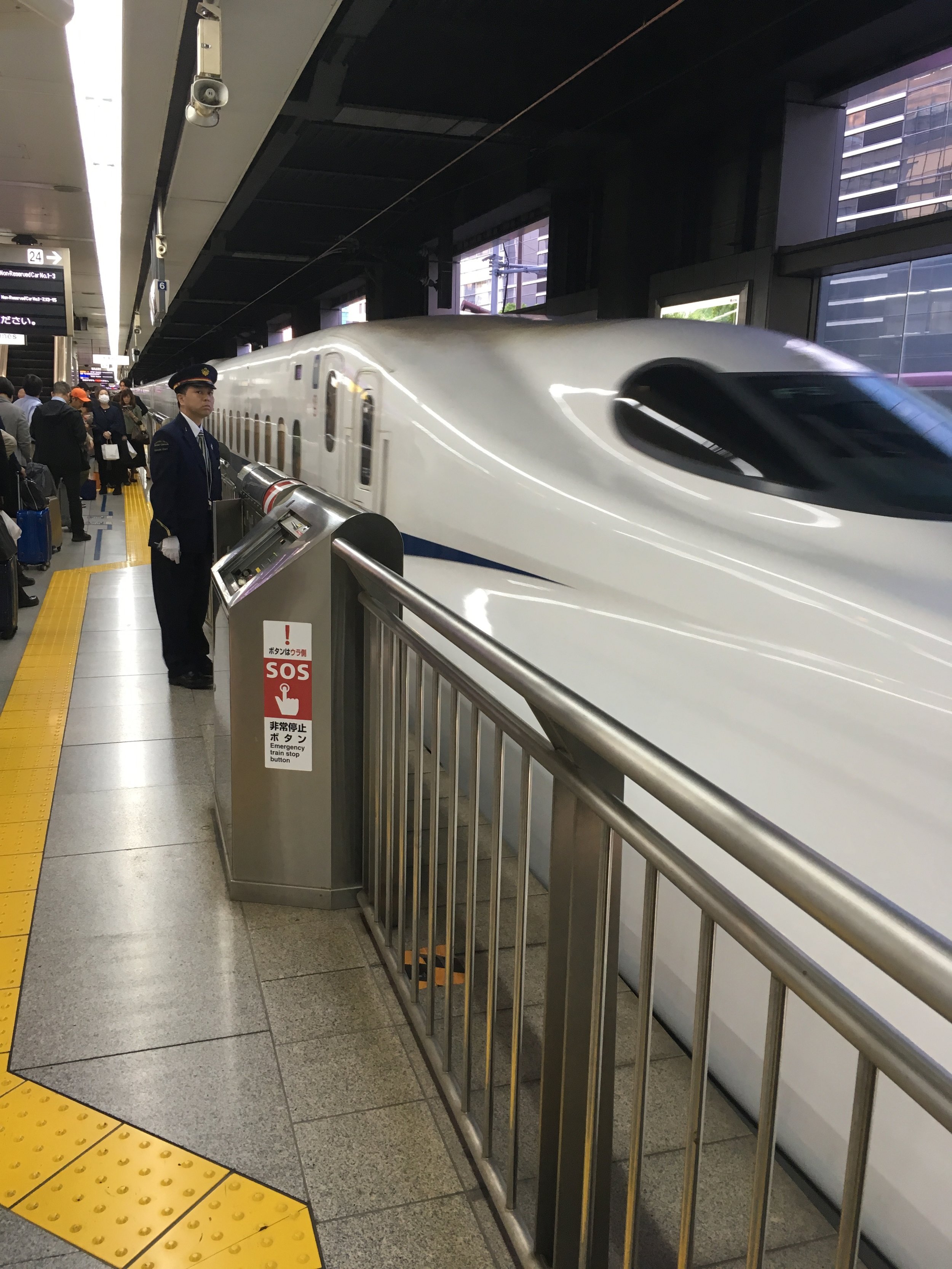Shinkansen!
/After the great evening with the Dementia Friendly Japan Initiative the sharing continued with another gathering a few days later, this time in Tokyo. Thanks to arrangements made by Makoto along with Atsushi Matusbara and Daisuke Sawada at the Foundation for Promoting Personal Mobility and Ecological Transportation (or the "Eco-Mo Foundation"), I was invited to talk at a meeting of transport operators, academics, designers, and representatives from various disability groups.
EcoMo is working on a range of projects to achieve 'barrier-free' transport and environmental transport measures that they describe as '... activities to create a social environment that is friendly both to humans and to the earth'. Who could argue with that?
The day started with a trip on the Bullet Train or Shinkansen to Tokyo which was a real highlight! A fantastic experience ...although it started with confusion as you have to put both tickets (travel ticket and seat reservation) in the machine at the same time - took me a few goes and a hurried conversation to work this out. It was a good reminder that travel is complicated if you don't know the rules...
But the trains are smooth, quiet, on schedule, super-frequent, accessible ... and very fast.
I liked the information on each seat - made it clear where you are, what's nearby and where you're going!
Daisuke Sawada met me at Shinagawa, one stop before central Tokyo, and took me to the Kokuyo office which was hosting the event. The rooftop garden office and pool was slightly different to the usual Upstream workshop environment.
I felt very welcomed and an honoured guest. Around 60 participants came along - transportation professionals, academics, people with disabilities, architects, designers ... a great mixture of experience and skills.
Atsushi Matsubara started off, presenting results from a survey that EcoMo had carried out to discover the thoughts of people affected by dementia regarding transport and travel services. Around 4.4 million people are living with dementia in Japan. Of the 380 people contacted, 190 responded and some key messages were:
- 80% had faced a situation where confusion had made travelling difficult
- a number of people reported that that they often mistakenly travel without money
- access to public toilets during a journey is a major issue
Some transport operators had responded:
- 11 reported that they had training materials for staff around disability/dementia, 3 of them had created materials themselves
- 12 companies reported that they would welcome opportunities to learn more about dementia
There is recognition that there are many passengers travelling with dementia and also that transport for people living in care homes could be more appropriate too. There was talk of accreditation for employees and also the value of recognising their own personal experiences. This was all sounding very familiar and Atsushi shared his experience of witnessing support available for people affected by dementia in the UK... then it was my turn.
And a few minutes later 60 people were doing the Upstream thing, drawing their journeys through Tokyo and talking animatedly with each other about their different experiences … these pictures include some from Dementia Friendly Japan Initiative
After describing the project (with fantastic translation from Taka) we had a Q & A session where participants asked about driving with dementia, the problems with tickets, the colour of ramps that help people get onto buses, the inequalities of travelling with dementia and more. There was particular interest in the Gatwick Airport lanyard, and it was interesting to note that in the ADI conference pack there was a luggage tag that promoted a similar idea - to identify people who might require some assistance, or a seat. This seemed to be more widely known - a few people at the workshop had them tied to their bags and I'd noticed signs about these on Kyoto buses the day before. So it looks like quite a comprehensive approach although I'm not sure what operator training is part of the arrangement... [update - more information about this from the Kyoto Prefecture website]
There was much more to talk about but we ran out of time. It was another great chance to exchange ideas, to learn from each other and to explore how we might work together. Again, Upstream’s approach was well received. In summarising, Atsushi Matsubara noted that the biggest message for him was the importance of involving people affected by dementia and that this approach was something to work towards in Japan. It made me think about how lucky we are in the UK to have a network of groups and individuals who are willing to give their time, energy and insights to helping projects like Upstream.
It’s easy to talk about collaboration and sharing but it truly felt as though Upstream, the Dementia Friendly Japan Initiative, the EcoMo Foundation, Fujitso laboratories and others are using similar language and have similar aspirations - to work towards inclusive design and service improvement to enable people affected by dementia and others who may need assistance to travel with confidence. We parted as new friends, talking right up to the Shinkansen departure gates, wondering how to turn our animated conversations into collaborative action in the future.
Thanks again to Makoto, Atsushi Matsubara and Daisuke Sawada for their enthusiasm, collaboration and warm welcome!






